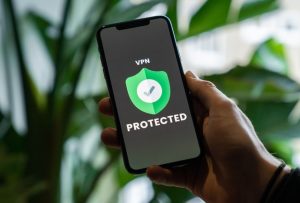As digital technologies become increasingly prevalent, the need for secure e-government privacy has become more critical than ever. With citizens’ personal data increasingly stored within government-maintained databases, ensuring the security of this data from unauthorized access and misuse is essential. In this article, we explore the importance of e-government privacy and provide best practices for keeping citizens’ personal information safe.
Policymakers face a difficult task in balancing accountability and anonymity to allow user control as much as possible while also protecting citizens’ personal information from unauthorized access or misuse. To achieve this balance, community norms must be established that respect user desires while also providing adequate protection against potential threats. Technical capabilities such as collecting, storing and searching large quantities of data concerning telephone conversations, internet searches and other activities can help protect users’ privacy but must be done in a way that respects their rights to privacy.
Personal information should be stored securely with appropriate measures taken to protect it against unauthorized or unlawful processing, loss, theft, destruction or damage. Digital privacy laws are designed to help control how your data is stored by big businesses and shared with third parties online. These laws are important for protecting your personal information online from cyber threats such as identity theft or fraud. It is important to understand what Internet privacy laws exist so you can take steps to protect yourself when using the Internet or sharing your data with others online.
The Growing Need for E-Government Privacy
The rise of digital technologies has brought with it a host of new opportunities for governments to improve their services, provide more efficient services for citizens, and increase transparency and accountability. However, this has also created new challenges in terms of protecting citizens’ personal data. E-government services are often used to store and process large amounts of personal data, such as citizens’ contact information, financial records, and medical histories. This data is then used to enable governments to provide services such as healthcare, taxation, and social welfare. As such, it is essential that this data be kept secure from unauthorized access and misuse. To ensure the privacy of e-government users’ personal information while still providing effective public services requires a comprehensive approach that includes both technological solutions as well as policy changes.
The Federal Government needs a Digital Strategy that embraces the opportunity to improve public digital spaces safely and securely with fewer resources. Such a strategy would include measures like encryption protocols for sensitive data storage; authentication systems for user identification; robust security policies; regular audits; training programs for government employees on cyber security best practices; and increased collaboration between government agencies on cyber security initiatives. Additionally, governments should consider implementing policies that promote greater transparency in how they use citizen’s personal information by providing clear guidelines on how it will be collected or shared with third parties.
In addition to technological solutions aimed at protecting e-government users’ privacy rights online, there must also be policy changes designed to ensure these rights are respected offline too. Governments should consider introducing legislation that limits the amount of time companies can store user’s personal information or restricts its use without explicit consent from the user themselves – similar laws already exist in some countries around the world including Europe’s General Data Protection Regulation (GDPR). Furthermore, governments should look into creating independent bodies tasked with monitoring compliance with these laws so any violations can be quickly identified and addressed appropriately – something which could help build trust between citizens and their government when it comes to using e-government services online.
The proliferation of digital technologies has also led to an increase in cybercrime which further highlights the need for strong measures when it comes to protecting citizen’s privacy online – especially since many e-government systems contain highly sensitive information about individuals which could potentially be exploited by malicious actors if not properly secured against attack attempts like phishing or hacking attempts . Governments must take steps towards ensuring their systems are regularly updated with patches against known vulnerabilities while also investing in advanced cybersecurity tools like artificial intelligence (AI) based malware detection software so any suspicious activity can be quickly identified before any damage is done .
Finally , leveraging technology responsibly can help create more inclusive societies where everyone has access  to quality public services regardless of their socio economic status . It would also improve citizen participation in democratic processes , increase transparency in government operations , facilitate more sustainable practices , counteract disinformation , support policy making decisions , address consumer protection issues , reduce inequalities among different groups within society  and ultimately lead towards better outcomes overall .
The Benefits of Secure E-Government Privacy
Secure e-government privacy is essential for protecting citizens’ personal data from unauthorized access and misuse. It also enables governments to provide more efficient services, as they are able to access and process citizens’ data more quickly and accurately. This increased security can help to increase the trust of citizens in their government, as they are assured that their personal data is being kept safe and secure. The Privacy Act of 1974 and the privacy provisions of other laws govern the collection or use of personal information by the federal government. To ensure secure transactions, minimal personal information should be revealed while individuals should be empowered to control the messages they receive over telecommunications. Furthermore, reasonable security safeguards should be implemented to protect against risks such as loss or unauthorised access, destruction, use, modification or disclosure of personal data. An analysis of laws and practices in 13 countries has developed a descriptive framework for comparing national laws on surveillance which provides individuals with a means by which to seek access to and amendment of their records while setting forth various agency record-keeping requirements. All these measures taken together ensure that e-government privacy is maintained securely so that citizens can have peace of mind when it comes to their private information being handled responsibly by governmental bodies.
Best Practices for Ensuring E-Government Privacy
Strong authentication protocols are essential for ensuring secure access to government databases. This includes the use of SSL and TLS certificates that support Encryption on website domains. Additionally, data stored in government databases should be encrypted to protect it from unauthorized access. Data access policies should also be implemented to restrict access to sensitive data only to those individuals with a legitimate need for it. Regular security audits should also be conducted in order to detect any security vulnerabilities in government systems, and processes must be developed quickly detect and respond any security breaches that occur.
In addition, governments must establish basic security practices and policies for employees such as requiring strong passwords, as well as appropriate Internet use guidelines that detail what is acceptable behavior when using the Internet or other digital services provided by the government. Secure transactions should also be enabled so that minimal personal information is revealed during these transactions, while empowering individuals with control over the messages they receive over telecommunications networks. Finally, data protection methods such as encryption can help ensure privacy by preventing anyone from viewing data without a private encryption key; this is known as data loss prevention (DLP). By implementing these best practices for e-government privacy, governments can ensure their citizens’ personal information remains secure while still allowing them access to important services provided by their governments online.
Conclusion
In conclusion, it is essential for governments to take steps to ensure the secure e-government privacy of their citizens. This includes implementing best practices and regulations that protect personal data from unauthorized access and misuse. Additionally, individuals should be given the right to control what information they share online and be provided with reasonable security safeguards against risks such as loss or unauthorised access, destruction, use, modification or disclosure of their data. Furthermore, governments should enable secure transactions in which minimal personal information is revealed and provide simple steps that can help protect citizens’ online accounts from being compromised. By taking these measures into consideration, governments can not only protect their citizens’ data but also improve services and increase trust in their government.




Be First to Comment